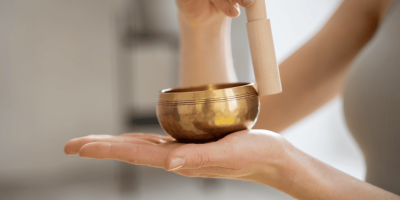
- 5 normal gestures that people find rude and offensive in different households.
- Travelling while respecting traditions from different countries.
- Understanding the difference in culture and respecting it.
Heard the news? Travels out of state are finally permitted because the pandemic is slowly winding down.
However, this isn’t an excuse to become rude and selfish because the virus is still out there, and it is our responsibility to ensure we always follow the SOP rules to keep ourselves and our loved ones safe.
Travelling overseas is still in discussion, but this article is to prepare you for your trips in 2022 because we know everyone is dying to get themselves a first-class ticket out of stress land.
Although we are all exhilarated to pack up our bags and fly to an exotic country, keep in mind some of the normal gestures we do in Malaysia can be considered highly offensive in other countries.
The last thing you want is to go on a vacation and end up in jail for offending someone. Not to worry, we, POKOK are here to list down some of the gestures that are found offensive in households.
1/ Italy

Let’s take a trip to Italy, shall we? The land of mouth-watering pizzas and pasta. Italians are particular with the way they eat their food.
They have so much love and respect for their cuisines that it is considered offensive if you eat without etiquette.
We understand eating pasta can be a battle, and some might think it would be much easier to chop little pieces of the pasta rather than rolling them up into a mini ball before consuming it.
However, if you fancy doing this in the comfort of your own home, go ahead because we don’t judge, but we would warn you to think twice before doing this in Italy.
Never bring a knife to cut your pasta unless you want local Italians to think you’re rude and despise you. To avoid this awkward scenario, try twirling the pasta from the edge of the dish instead of the middle.
2/ Portugal

Could you pass me the salt? Sound familiar? Well, this is a common phrase heard in households everywhere when you’re feeling like adding a little more flavour to your food.
However, if you plan to choose Portugal as your next destination for vacation, it would be advised not to ask people to pass the salt in restaurants or visit a friend there.
Reason being, Portuguese citizens, consider this act as rude. The chef or someone cooking would be offended because they feel that you doubt their culinary skills, and that is a debate you do not want to be a part of.
Let’s just say the Portuguese are proud of their culinary skills. As Malaysians, we should indulge in their traditional and exquisite dishes and leave the tradition of adding additional salt and pepper back home instead.
3/ Greece

We know you’re in utter shock right now and probably screaming through your screen about this rule; however, showing the thumbs-up sign in Greece is indeed considered rude and offensive.
It sounds bizarre considering this a normal act worldwide to seek approval about something or compliment a person or a meal.
People in Greece find the thumbs-up sign is equivalent to showing someone the middle finger.
So if you were visiting someone in Greece, and you wish to show approval or appreciation towards someone, it’s better just to nod your head or shake hands with them instead.
4/ Japan

Eating with chopsticks is something that the whole world has adapted to, especially when it comes to eating Asian food such as sushi or noodles.
Have you ever come across wooden disposable chopsticks? They are usually packaged in a way where people would need to separate them before using chopsticks.
That is why many people rub chopsticks together to smoothen the texture of the chopsticks to prevent any splinters from sticking out.
However, despite Japan’s clean streets and warm hospitality, the public there finds this act highly rude and offensive. They believe rubbing chopsticks together is an indirect sign that house owners or restaurants have provided low-quality chopsticks.
So for your next trip to Japan, try avoiding this misstep and astound the locals with your chopstick expertise instead.
5/ France

Bonjour! You have now landed in France at the capital Paris. The city of Love they say.
Wish to eat some bread? The choices of delicious baguettes are endless. Wait, don’t cut up the bread with a knife!
As common as cutting bread with a knife may seem, doing so in France is unethical, and the same goes for biting the bread directly.
The locals in France hate to see it. The traditional way to eat a baguette is by tearing it up with your hands so that you can enjoy your meal while having a fantastic conversation with the people at home.
So the next time you fly to France, make sure to tear up those baguettes with your hands and enjoy the beautiful sight of France.
We’re pretty sure you would not want a Frenchman glaring at you with disappointment.
These are some common behaviours that people in different countries find them rude. If you have any suggestions or opinions about things we should avoid in different countries, feel free to comment down below.









